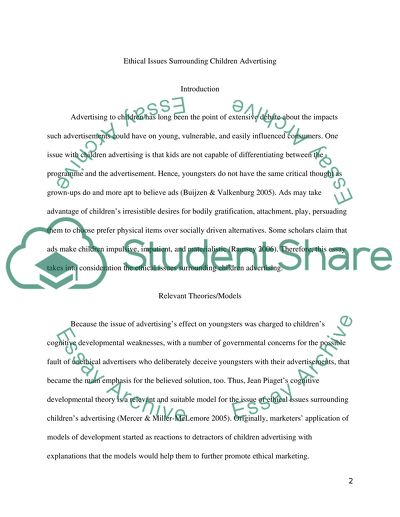Cite this document
(“Ethical Issues Supporting Children Advertising Essay”, n.d.)
Ethical Issues Supporting Children Advertising Essay. Retrieved from https://studentshare.org/marketing/1442194-ethical-issues-surrounding-children-advertising
Ethical Issues Supporting Children Advertising Essay. Retrieved from https://studentshare.org/marketing/1442194-ethical-issues-surrounding-children-advertising
(Ethical Issues Supporting Children Advertising Essay)
Ethical Issues Supporting Children Advertising Essay. https://studentshare.org/marketing/1442194-ethical-issues-surrounding-children-advertising.
Ethical Issues Supporting Children Advertising Essay. https://studentshare.org/marketing/1442194-ethical-issues-surrounding-children-advertising.
“Ethical Issues Supporting Children Advertising Essay”, n.d. https://studentshare.org/marketing/1442194-ethical-issues-surrounding-children-advertising.


